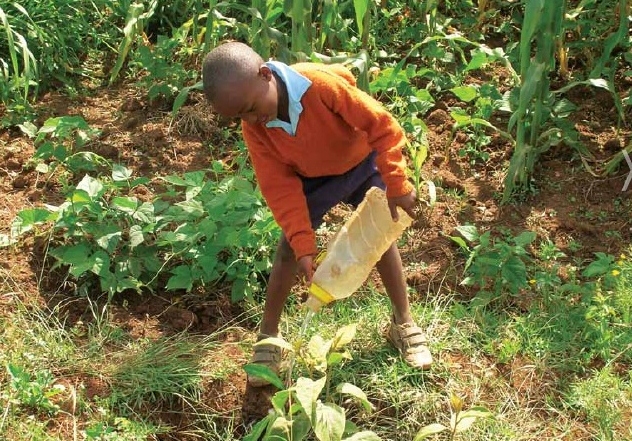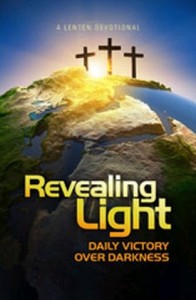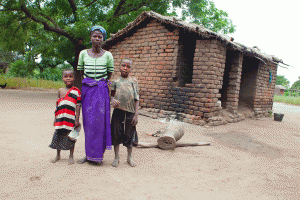by Ed Brown
There is a program in Africa called “Farming God’s Way”. The unusual name comes from a simple premise: Things might go better on our farms if we try to do things “God’s way.”
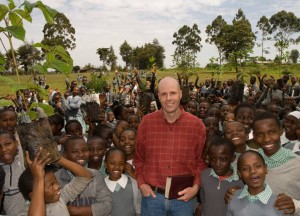 Care of Creation Kenya, a sister organization to my organization, Care of Creation, has been involved in researching, testing and implementing this program in central Kenya on the slopes of the great Rift Valley.
Care of Creation Kenya, a sister organization to my organization, Care of Creation, has been involved in researching, testing and implementing this program in central Kenya on the slopes of the great Rift Valley.
Brian Oldrieve became the manager of Hinton Estates, a large commercial farm in Zimbabwe, in 1982. For his first two years he struggled with the same challenges as all of the other farms around: High input costs, high soil erosion, and rapid loss of soil fertility with corresponding drops in yields. Brian started to pray, asking God to show him how he could manage these fields – God’s fields – in such circumstances.
Here’s how one of Brian’s colleagues describes the process:
Brian asked God to teach him how to overcome the difficulties he was encountering and so the discovery of Farming God’s Way began. God began to speak to him about how he manages creation, where he never tills or inverts the soil and where he never destroys or buries decaying plant matter on the surface. God also spoke clearly of the stewardship and excellence farmers are called to adopt, by caring for and managing the land in a way that would ensure that farmlands could be passed on as an inheritance from one generation to another and bring glory to God. [FGW Training Guide p 11]
For Brian, doing things “God’s Way” meant two things: Learning to work in harmony with how God runs his world, that is, with the natural operations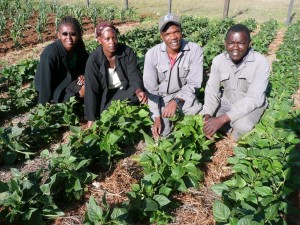 of God’s creation as we can discover them; and learning to work according to the principles of the Word of God, the Bible. Understand the world; study the Word; put them together and do the thing ‘God’s Way’.
of God’s creation as we can discover them; and learning to work according to the principles of the Word of God, the Bible. Understand the world; study the Word; put them together and do the thing ‘God’s Way’.
Brian’s “discovery”, to use his term, was actually quite close to what research programs in the West had started calling conservation no-till agriculture: Farming without plowing. There is a strong emphasis on organic compost (“God’s blanket” in Farming God’s Way terminology), minimal chemical input and a lot of manual weeding.
But the more important difference is in the second part of the formula. Brian was not just observing the world; he was teaching people to obey the Word. Farming God’s Way is an agricultural program that uses Christian discipleship, and a discipleship program that uses agriculture.
The results back in 1984 were astounding, and the program continues to amaze today. Yields in Farming God’s Way plots double or triple the first year, and continue to increase year after year as the fertility of the soil is restored.
My colleagues at Care of Creation Kenya have been testing this program and teaching it to local farmers for a number of years, and even though their testing has coincided with several years of severe drought, the results are remarkable. In 2008, maize in the Farming God’s Way plot was double that of the control plot (which used traditional farming methods). In 2009, in the same plots, FGW was triple, and 2010 saw a four-fold increase over the control.
Here’s a thought: If ‘Farming God’s Way’ works on a farm, would ‘teaching God’s Way’ would work in a school? How about ‘manufacturing God’s Way’ in a factory? Could we consider ‘Running the World God’s Way’?
No, if we’re going to do things differently, we really have to start from scratch.
Paul Hawken famously said, “Civilization needs a new operating system”. And James Speth’s Bridge at the End of the World: Capitalism, the Environment, and Crossing from Crisis to Sustainability contends that we have to figure out how to run the world completely differently. Our current political and economic systems are not capable of solving the problems they have created. With quotes from such thinkers as Vaclav Havel, Aldo Leopold, Erich Fromm and Thomas Berry, Speth concludes that what we need is some kind of a transformed human mind, a new consciousness:
So let’s get back to the thought behind Farming God’s Way: Things will go better when we learn to work with God and his creation.
There are really two parts to the challenge, corresponding to Brian’s two principles: We need to understand how God’s world works, so we can work in harmony with it; and we need to understand the principles in God’s word, so we can work according to them.
How the world works is the easy part. An important part of the environmental challenges we face is in fact scientific – and many of the solutions we need will come from science. We’re making progress in many areas and I am confident we’ll continue to do so.
Remember, though: It is a two part challenge. The gap we face today is not in understanding how the world works so much as in knowing how God wants his world to run. What are God’s purposes? What outcomes is he looking for? And that’s where we need to go to work.
Let’s use an analogy.
Suppose you own a large ranch in, say, Texas. You ask me to manage it for you. The length of time is undetermined but not perpetual: You will be returning to take over the property again. You give me complete legal authority over this property – Powers of Attorney are signed, bank accounts have me as a signatory, and off you go into the sunset, leaving me to… Do what, exactly? What am I supposed to do with this vast estate?
My management strategy could go several different directions. I could pursue short term profit-taking, by entering into quick contracts to sell off lumber, cash in water rights, and hold livestock auctions. I could make a great deal of money for both you and me in a very short time. Or I could manage conservatively with a long term horizon in mind. I would want to learn how to manage grazing lands in a way that would keep them healthy; how many cattle I can keep in each quarter-section at a time without damaging the ground cover and causing erosion and long term decline. Remember – I have complete control. I can do either.
What will guide me? Well, I hope that at some point, you and I would have talked about your goals for the property. We might have walked or ridden around the ranch, talking about your dreams, what you had in mind when you acquired the property.
Do you see? Everything I do as your manager should be guided by your dreams and goals for the place, not mine. If you’re planning to sell it in a year, maybe the short-term, cash-it-all-in approach is what you want from me. But it might be that you are looking at this as an investment that you want to pass down to your grandchildren someday. If that’s the case, the last thing you want me to do is liquidate everything in the first year. You will want to be sure that I understand that long-term viability is your goal.
It’s not hard at all to make the connection between this ranch and God’s creation, is it? This is God’s place. And God’s goals should determine how we manage it.
Maybe we should try to figure out what God’s goals are… And then we can think about running God’s world God’s way.
Rev. Edward Brown is Executive Director of Care of Creation Inc. and author of Our Father’s World: Mobilizing the Church to Care for Creation. He has also recently been appointed as Senior Associate for Creation Care for Lausanne. This article excerpted from a forthcoming book in which he will explore God’s goals for his creation, and how understanding those goals could transform the entire human enterprise. Stay tuned!

